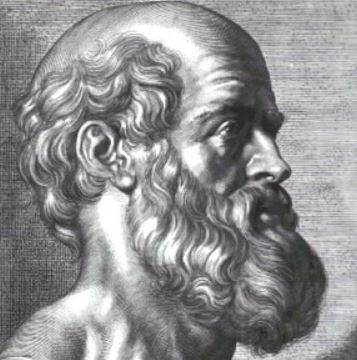
A transcending figure throughout the entire existence of medication was the doctor Hippocrates of Kos (c. 460 – c. 370 BCE), considered the "father of present-day medicine." The Hippocratic Corpus is an assortment of around seventy early clinical works from old Greece firmly connected with Hippocrates and his understudies.
Most broadly, the Hippocratic designed the Hippocratic Oath for doctors. Contemporary doctors make a solemn vow of office which incorporates perspectives found in early versions of the Hippocratic Oath.
Hippocrates and his devotees were first to depict numerous illnesses and ailments. Despite the fact that humorism (humoral) as a clinical framework originates before fifth-century Greek medication, Hippocrates and his understudies systematized the reasoning that ailment can be clarified by an irregularity of blood, mucus, dark bile, and yellow bile.
Hippocrates is given acknowledgment for the main depiction of clubbing of the fingers, a significant analytic sign in incessant suppurative lung ailment, cellular breakdown in the lungs, and cyanotic coronary illness. Thus, clubbed fingers are some of the time alluded to as "Hippocratic fingers". Hippocrates was likewise the primary doctor to portray the Hippocratic face in Prognosis. Shakespeare broadly implies this portrayal when composing of Falstaff's demise in Act II, Scene iii. of Henry V.
Another of Hippocrates' significant commitments might be found in his depictions of the symptomatology, physical discoveries, careful treatment, and guess of thoracic empyema, for example festering of the covering of the chest hole. His lessons stay pertinent to introduce day understudies of aspiratory medication and medical procedures. Hippocrates was the main recorded individual to rehearse cardiothoracic medical procedures, and his discoveries are as yet legitimate.
A portion of the procedures and hypotheses created by Hippocrates are presently incorporated by the fields of Environmental and Integrative Medicine. These incorporate perceiving the significance of taking a total history which incorporates ecological introductions just as nourishments ate by the patient which may assume a job in their sickness.